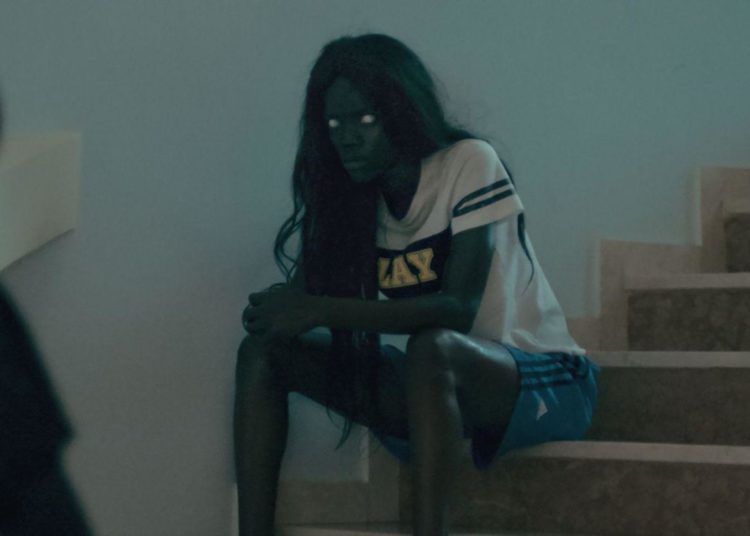This post is also available in: Français (French) العربية (Arabic)
Boo 3al Taboo: Challenging patriarchal norms with humor and conviction
With a sharp wit and unfiltered approach, Lebanese content creator Stéphanie Haddad takes the mic solo, confronting gender stereotypes, sexist behavior, and the deep-seated ideas that uphold patriarchy. In just five minutes, she uses rhetorical questions and striking comparisons to highlight ongoing gender inequalities in Arab societies—and beyond.
In one episode, she exclaims, “How? How can we? How do we, in the Arab world, blame the victim when she is raped?” and then denounces, “To those who think discussing menstruation is obscene, shame on you!” before breaking down her argument.
The success of Boo 3al Taboo owes much to Haddad’s dynamic and engaging personality. With over 35,000 Instagram followers, she extends the podcast’s themes onto her social media, sharing additional content that reinforces her message. In a conversation with Lebanese DJ Jack Sleiman, she reflects:
“I thought people followed me for my humor, but most messages I receive ask how I, as a woman in the Arab world, can express my anger so freely. Many encourage me, saying, ‘Talk because we can’t.’”
Each episode of Boo 3al Taboo lifts the veil on a taboo. The formula is simple but impactful. Isn’t it time to say Boo?
The three seasons are available in audio format on Womena Media and in video format on YouTube.
Femmes en Sursis : de l’emprise au feminicide – Intimacy is political (in Arabic, subtitled in French)
Among the standout feminist podcasts on Inkyfada, an independent Tunisian media platform, Femmes en Sursis: de l’emprise au féminicide is particularly compelling. This four-part series blends personal accounts with expert analysis to expose the structural violence that women endure—violence that can escalate to femicide.
Through the stories of Refqa Cherni, who was murdered by her husband, a National Guard officer, Amira, who survived a decade of domestic abuse, and Souad, convicted for killing her violent husband, the podcast seeks to “honor their memory” and “do them justice.” All three women reported their abusers, but none received protection.
The series highlights the justice system’s failures in protecting victims and punishing perpetrators, as well as the complicity of a society that normalizes and even encourages violence. The final episode dissects the media’s treatment of gender-based violence, exposing a widespread lack of ethical standards.
Nujud Rejbi, the podcast’s producer, explains the editorial team’s careful approach:
“We wanted to center victims’ voices, supported by expert perspectives, within boundaries that respected their comfort. Transparency was key. During interviews, victims spoke freely, with the option to remain anonymous.”
All episodes are available here.
Masâha: A platform for Arab women activists (in Arabic)
Produced by the independent podcast network Sowt, in partnership with the German Friedrich-Ebert-Stiftung, Masâha (meaning space in Arabic) is now in its fourth season. Each 30-minute episode features Arab women activists of different nationalities, sharing their insights on social and economic issues through a feminist lens. Topics include “What is social justice?” and “How do women navigate the labor market?”
Unlike traditional debate formats, Masâha takes a more narrative-driven approach. A journalist finds a central thread, weaving together arguments through careful editing. The podcast complements ‘Eib (Shame)—another Sowt series that explores gender roles and social norms through personal storytelling—by offering a more analytical perspective.
The second season focused on feminist movements, covering postcolonial feminism, intersectional feminism, and ecofeminism. The latest season shifts focus to women in conflict zones, featuring stories from Sudan, the Western Sahara, and Gaza.
Since its launch in 2019, Masâha has accumulated nearly half a million listens. Notably, nearly half of its audience comes from Saudi Arabia, which consistently ranks as Sowt’s top listener base.
“That’s a strong number, especially given the nature of our content,” notes Sowt producer Rana Daoud. “Masâha isn’t an easy listen—it demands focus.”
Egypt and the United Arab Emirates also contribute significantly to the audience, most of whom are women.
“We assume our listeners already have some knowledge of these topics. They’re not here for introductions. Based on our feedback, many are activists, journalists, or researchers,” Daoud explains. Some episodes are even used in university courses.
All episodes are available here.
Podcasts: A free and safe space for expression
For the creators behind these podcasts, the medium offers undeniable advantages. It fosters solidarity, encourages dialogue, and creates a shared space for women’s experiences. “Podcasting allows for in-depth discussions without the space constraints of written formats. Words aren’t counted. The audience is engaged—we speak to them directly,” says Sowt’s Rana Daoud.
Her colleague, Basant Samhout, producer of Masâha’s latest season, shares a similar sentiment. “This format gives us the freedom to tackle issues we couldn’t approach in the same way through other media—including social networks. There’s less censorship; podcasts reach audiences everywhere.”
Compared to video, Femmes en Sursis’s Nujud Rejbi sees audio as uniquely powerful, especially for sensitive topics. “Being on camera can feel intimidating and intrusive, while podcasts make interviewees more at ease. Sound alone carries raw emotion. Personally, I find podcasts more moving than video documentaries,” she argues.
These observations reinforce one reality: podcasts are an essential tool in amplifying women’s voices and struggles.































